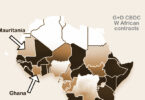The ASEAN Financial Innovation Network (AFIN) is launching a central bank digital currency (CBDC) sandbox in collaboration with R3. AFIN is a non-profit backed by the Monetary Authority of Singapore (MAS), the World Bank’s International Finance Corporation (IFC), and the ASEAN Bankers Association.
The new sandbox will be part of the API Exchange (APIX) and enable central banks and regulators to experiment with CBDCs. The sandbox aims to support new payment rails that support CBDCs and multi-currency payment solutions using R3’s Corda enterprise blockchain.
“There has been an increasing interest in the deployment of blockchain technologies, which has created a strong demand for more efficient international payment settlements compatible with these technologies,” said Sopnendu Mohanty, MAS Chief FinTech Officer.
“MAS is encouraged by the collaboration between AFIN and R3 to facilitate broader experimentation between central banks, financial institutions, and FinTechs around the world. The collaboration will enable the global FinTech ecosystem to better understand the financial innovations around digital currencies.”
The solution will be added to APIX in August, but for now, the Digital Currency Sandbox is available directly from R3.
Last September, Mastercard launched a similar concept for organizations to play with central bank digital currencies. However, that is based on the Mastercard payments rail, whereas the R3 one is less restrictive.
The moves come as various large organizations are exploring CBDCs, including the main cross border payment messaging network SWIFT. Accenture is working with SWIFT to explore interoperability between CBDC and non-CBDC payment networks as well as digital asset networks. While Accenture supports multiple flavors of blockchain, to date, most of its CBDC work has also been on R3’s Corda.
For some time, Corda was the most popular technology for CBDCs, especially on the wholesale side. But in the last 18 months, as retail CBDCs moved up the agenda, almost every blockchain technology has claimed an interest.
ConsenSys has won a few experimental projects using Ethereum. Public blockchain Tezos has been used in French CBDC experiments. Ripple has thrown its hat in the ring. And Hedera Hashgraph has expressed interest. Hedera has multiple payment partners in South Africa’s Standard Bank, Korea’s Shinhan Bank and Australian payments rail eftpos.
Meanwhile, the Monetary Authority of Singapore is pretty active in CBDC itself. After multiple rounds of Project Ubin CBDC experiments, it is now working with the BIS on a DLT platform that could support multiple CBDCs to enable banks to make cross border payments.







